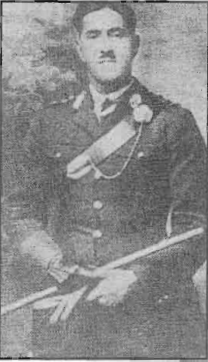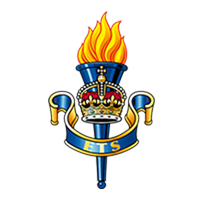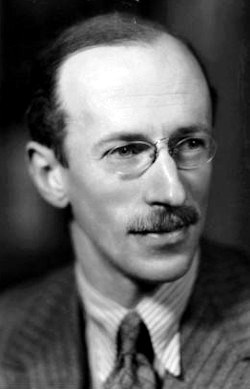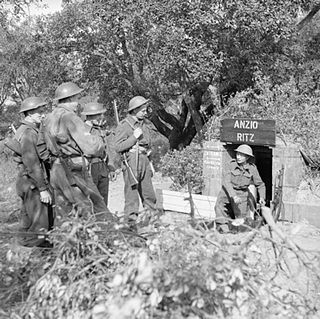
The War Office has referred to several British government organisations in history, all relating to the army. It was a department of the British Government responsible for the administration of the British Army between 1857 and 1964, when its functions were transferred to the new Ministry of Defence (MoD). It was at that time, equivalent to the Admiralty, responsible for the Royal Navy (RN), and the Air Ministry, which oversaw the Royal Air Force (RAF). The name 'War Office' is also given to the former home of the department, located at the junction of Horse Guards Avenue and Whitehall in central London. The landmark building was sold on 1 March 2016 by HM Government for more than £350 million, on a 250 year lease for conversion into a luxury hotel and residential apartments.

The 1941 Iraqi coup d'état, also called the Rashid Ali Al-Gaylani coup or the Golden Square coup, was a nationalist coup d'état in Iraq on 1 April 1941 that overthrew the pro-British regime of Regent 'Abd al-Ilah and his Prime Minister Nuri al-Said and installed Rashid Ali al-Gaylani as Prime Minister.

The Duke of York's Royal Military School, more commonly known as the Duke of York's, is a co-educational academy with military traditions in Guston, Kent. Since becoming an academy in 2010, the school is now sponsored by the Ministry of Defence, and accepts applications from any student wishing to board. Before 2010, only those students whose parents were serving or had served in the armed forces were eligible.

Thomas Henry Wintringham was a British soldier, military historian, journalist, poet, Marxist, politician and author. He was a supporter of the Home Guard during the Second World War and was one of the founders of the Common Wealth Party.

Charles Frederick Tunnicliffe, OBE, RA was an internationally renowned naturalistic painter of British birds and other wildlife. He spent most of his working life on the Isle of Anglesey. He is popularly known for his illustrations for the novel Tarka the Otter.
The Royal Australian Army Educational Corps (RAAEC) is a specialist corps within the Australian Army. Formed in 1949, the corps had its genesis in other services that existed within the Australian forces during World War I and World War II. It is currently made up entirely of commissioned officers and is responsible for the provision of education-related services within the Army. Its various roles include instruction, designing computer-based learning materials, instructional systems, language training, literacy, and numeracy.

The Army Bureau of Current Affairs (ABCA) was an organisation within the British Army during World War II to promote discussion among soldiers about current events, citizenship, and post-war reconstruction.
Khaki University was a Canadian overseas educational institution set up and managed by the general staff of the Canadian Expeditionary Force (CEF) in Britain 1917–19 during the First World War. The system, named for the khaki-coloured uniforms of the CEF, was set up by the efforts of Henry Marshall Tory and Edmund Henry Oliver and was supported by the Young Men's Christian Association (YMCA). This university with makeshift colleges mainly in central England provided education on a range of subjects to more than 50,000 soldiers and the certificates given were accepted by Canadian universities. The term was used again for Canadian educational programs for veterans from 1945–46 after the Second World War.

The Directorate of Military Intelligence (DMI) was a department of the British War Office.
(George) Robert Gair, who later assumed the surname Gayre of Gayre and Nigg, was a Scottish anthropologist who founded Mankind Quarterly, a peer-reviewed academic journal which has been described as a "cornerstone of the scientific racism establishment". An authority on heraldry, he also founded The Armorial, and published a number of books on this subject. He achieved notoriety for claiming to be the Chief of "Clan Gayre" and "Clan Gayre and Nigg", it being subsequently found that such a "clan" had never existed; per the Glasgow Herald, Gayre created "a Scottish clan from scratch, providing it with traditions, rituals, precedences and privileges". Further, not only did he not have legitimate male-line Gair descent, but he had falsified a pedigree, given to Burke's Peerage among others, connecting his ancestor to a minor family of the name resident at Nigg. Many biographical details, such as ranks, degrees, and titles he claimed, are not independently verifiable, deriving from his own writings.

The Educational and Training Services form part of the Adjutant General's Corps and have done since 1992 when this Corps of the British Army was formed. Their remit is to continue the general education of soldiers and officers alike, as well as the actual military training of the soldiers of the Army.

Sir Basil Henry Liddell Hart, commonly known throughout most of his career as Captain B. H. Liddell Hart, was a British soldier, military historian, and military theorist. He wrote a series of military histories that proved influential among strategists. Arguing that frontal assault was bound to fail at great cost in lives, as proven in World War I, he recommended the "indirect approach" and reliance on fast-moving armoured formations.

The United States Army Air Forces was the major land-based aerial warfare service component of the United States Army and de facto aerial warfare service branch of the United States during and immediately after World War II (1941–1947). It was created on 20 June 1941 as successor to the previous United States Army Air Corps and is the direct predecessor of the United States Air Force, today one of the six armed forces of the United States. The AAF was a component of the United States Army, which on 2 March 1942 was divided functionally by executive order into three autonomous forces: the Army Ground Forces, the United States Army Services of Supply, and the Army Air Forces. Each of these forces had a commanding general who reported directly to the Army Chief of Staff.

In England and Wales, a public school is a type of fee-charging private school originally for older boys. They are "public" in the sense of being open to pupils irrespective of locality, denomination or paternal trade or profession, nor are they run for the profit of a private owner.

The Army Kinematograph Service (AKS) was established during the Second World War by the British government in August 1941 to meet the increasing training and recreational needs of the British Army. Created by the newly established Directorate of Army Kinematography, whose remit was "to be responsible for providing and exhibiting all films required by the Army for training, educational and recreational purposes", it expanded over the next few years to become the most prominent film production and exhibition section for a major part of the British Armed Forces.

The Ministry of Education, Vocational Training and Sports (MEFPD) is the department of the Government of Spain responsible for proposing and carrying out the government policy on education and vocational training, including all the teachings of the education system except university education, without prejudice to the competences of the National Sports Council in matters of sports education. Likewise, it is also the responsibility of this Department the promotion of cooperation actions and, in coordination with the Ministry of Foreign Affairs, the promotion of international relations in the field of non-university education.

The Naval Recruitment Training Agency (NRTA) originally called the Naval Training Department was first established in 1944 as a department within the Admiralty it underwent numerous name changes until 1 April 1995 as a new agency of the Navy Department of the British Ministry of Defence. Its role was to contribute to the operational capability of the United Kingdom Armed Forces by recruiting to the Naval Service, delivering training to the Defence community it was administered by the Chief Executive (NRTA)/Flag Officer, Training and Recruitment it was abolished in 2005.
Norman Bertram Marshall, known as Freddy, was a British marine biologist and ichthyologist who was worked at the British Museum. His main interests were in the area of deep sea research.
Robert Leckie Marshall was a Scottish educationalist who was principal of the Co-operative College.
Simpkin & Marshall was a British bookseller, book wholesaler and book publisher. The firm was founded in 1819 and traded until the 1940s. For many decades the firm was Britain's largest book wholesaler and a respected family-owned company, but it was acquired by the media proprietor Robert Maxwell and went bankrupt in 1954, an event which, according to Lionel Leventhal, "sounded a warning to the book trade about Captain Robert Maxwell's way of doing business".













